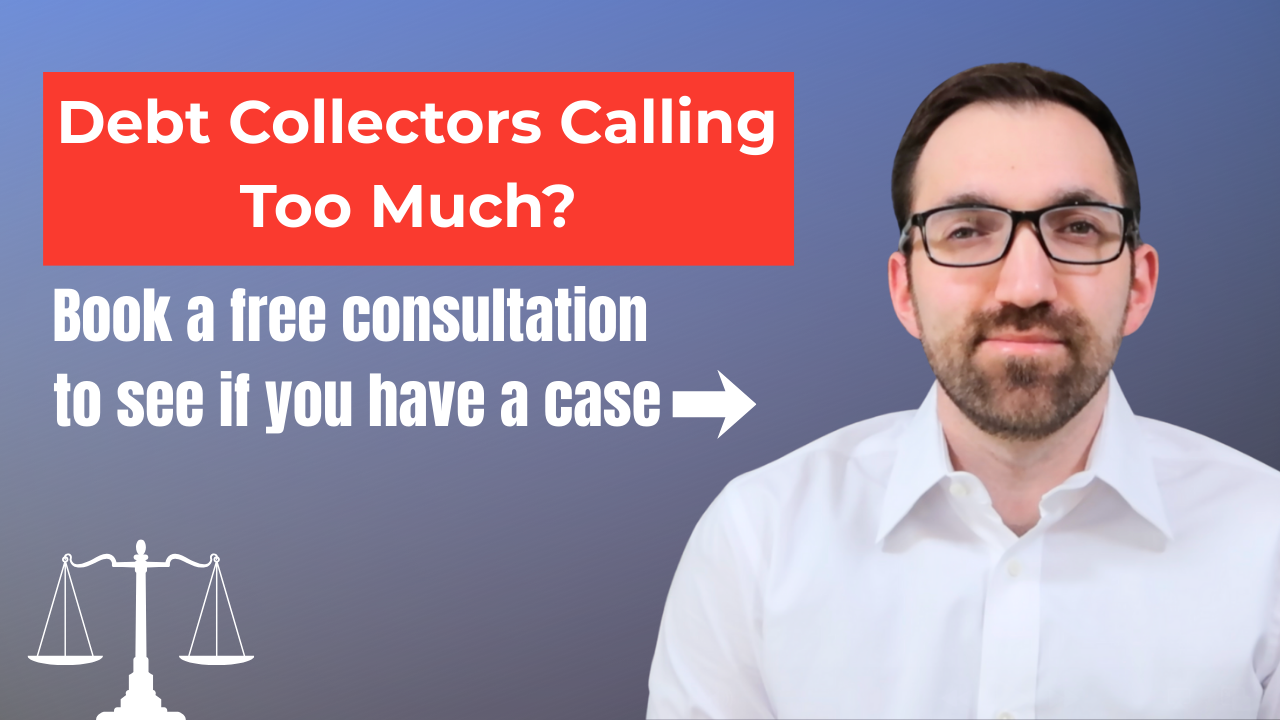How Many Times Can a Debt Collector Call You Before They Violate the Law
Debt collectors are allowed to call you but only within limits set by federal law. When they cross those lines, you may have the right to sue them for harassment. This article breaks down those limits and explains how to hold collectors accountable when they take it too far.
How Many Times Can a Debt Collector Call You in a Day?
The Fair Debt Collection Practices Act (FDCPA) makes it illegal for debt collectors to call you “repeatedly or continuously with intent to annoy, abuse, or harass.” The statute doesn’t give a specific number of calls that automatically crosses the line, so courts decide these cases based on the overall pattern and context.
Judges look at how often the collector called, whether the consumer answered or asked them to stop, and whether the timing or tone of the calls showed an intent to pressure or intimidate.
To bring more consistency to these gray areas, the Consumer Financial Protection Bureau (CFPB) issued new regulations known as Regulation F, which introduced a clear guideline for call frequency. These rules, often referred to as the 7-in-7 rule, establish when repeated contact is presumed to be harassment under federal law.
What is the 7-in-7 Rule for Debt Collectors?
Under the 7-in-7 rule, a debt collector is presumed to violate the FDCPA if they call you more than seven times within seven consecutive days about a particular debt, or if they call you within seven days after having a telephone conversation with you about that same debt.
These are two separate types of conduct. The first involves frequency: if the collector calls you more than seven times in a week, it’s presumed to be a violation. The second involves follow-up: if they spoke to you on the phone today and call again tomorrow, that too is presumed to be a violation.
They key word here is presumed. The CFPB did not amend the FDCPA but it gave consumers insight on what can potentially rise to an FDCPA violation. It is a strong reference point. For example, if you received 40 calls in a week, you can feel confident that courts will likely see this type of conduct as harassment under the FDCPA.
When can Debt Collectors Call You?
The FDCPA doesn’t just limit how often collectors can contact you but also restricts when those calls can happen. Collectors can only call between 8 a.m. and 9 p.m. in your local time zone. Calls outside those hours are illegal under the FDCPA unless you’ve clearly agreed to be contacted at those times.
Collectors must also avoid contacting you at times or places they know are inconvenient. If you tell a collector that you work night shifts and sleep during the day, for example, any daytime calls after that point may violate the FDCPA.
The same rule applies to workplace calls if your employer doesn’t allow personal calls during business hours. Once the collector knows that, continuing to call you at work can be considered harassment.
Can Debt Collectors Call on Sunday?
The same principle applies to weekend calls. If you’ve told a collector that calls during the weekend are off-limits because of family time or religious observance, but they continue calling, that can amount to a violation.
Once you’ve made it clear that Sundays aren’t acceptable, any further Sunday calls are very likely to violate the FDCPA. It’s best to put that preference in writing and keep a copy for your records. Date the letter, and if the calls continue afterward, take screenshots or call logs showing each attempt. That documentation can be powerful evidence if you decide to take legal action later.
What to do if a Debt Collector Keeps Calling
If the calls won’t stop, you have several legal options under the FDCPA. The first is to send the debt collector a written request to cease communicating with you. Once they receive it, they’re legally required to stop contacting you, except in a few limited situations allowed by law.
If the collector continues calling after your written notice, or if their behavior becomes threatening or harassing, you may have the right to sue under the FDCPA. The law allows consumers to recover statutory damages of up to $1,000, in addition to any actual damages, such as emotional distress, caused by the harassment.
If you’re dealing with repeated or harassing debt collection calls, don’t try to manage it alone. Contact Reznik Consumer Law to discuss your situation and learn your options for stopping the calls and holding the collector accountable.


